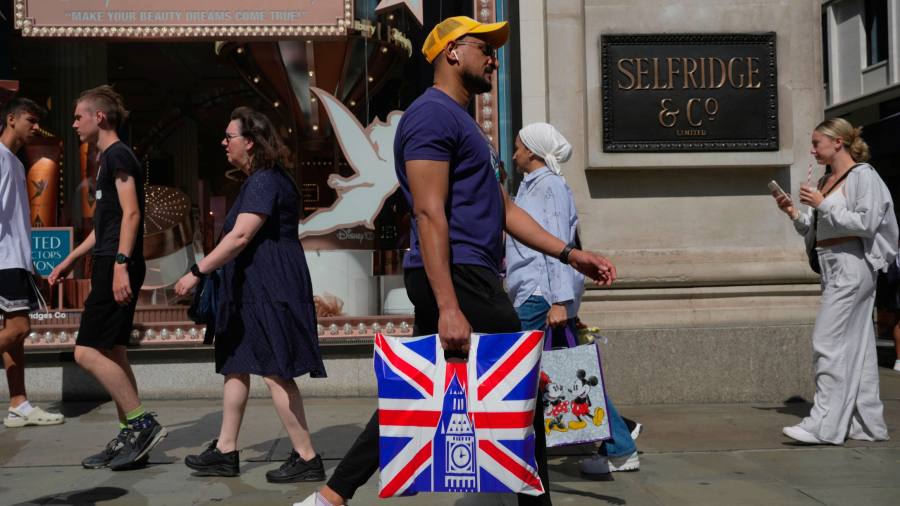
Receive free Economic statistics updates
We’ll send you a myFT Daily Digest email rounding up the latest Economic statistics news every morning.
The writer is director of Public First Consultancy and senior visiting fellow at the London School of Economics
The recent revisions of UK gross domestic product are extraordinary: almost 2 per cent of GDP. Cumulatively, the Office for National Statistics now thinks we are £50bn better off than it thought the week before — equivalent to £750 per person. Fifty-billion pounds is a lot of money to fail to spot.
This rise is good news for the prime minister and chancellor. They no longer have to cower under the weight of accusations of economic mismanagement.
But as citizens we should be angry. Wrong statistics lead to wrong decisions. If the economy is thought to be doing well, policy is unlikely to change. But if an economy is recorded as doing badly, policymakers will try new things — including risky things. Meddling with something that is working well is almost always a bad idea.
This is not the first major revision. A year ago, the ONS revised GDP downwards by 1.7 per cent, or £40bn. Two errors of this size cannot be ignored. We need a proper, independent inquiry. It is more than seven years since Charlie Bean, former chief economist at the Bank of England, produced his report into the quality of UK statistics, and it is time we had another report of that calibre.
The largest revision this time around was from wholesale trades, accounting for 1.4 percentage points of the total change. Wholesale and retail trades grew by a remarkable five times the previous estimate, thanks to a re-estimate of supplier margins. The ONS estimates margins from tax data, which by definition are available only with a substantial lag. At first sight the ONS has an excuse: it cannot crunch numbers it does not have.
An independent review should ask what can be done to expedite the collection and dissemination of these tax data. Should filing deadlines be brought forward? Can HM Revenue & Customs share data with the ONS more quickly?
We also need to think more about real time, or near real time, data. When I worked in the Treasury during the pandemic, I found companies exceptionally willing to share data, in order to be helpful to government. Firms know wrong statistics lead to bad policies, which in turn harm their businesses. I predict many will be willing to supply data to the ONS. We know that many retailers give the ONS a data feed from their systems so that it can compile inflation statistics more easily: these, and other companies, seem likely to be willing to do the same in order that GDP figures are accurate.
The second largest change came from an upwards revision to healthcare. The ONS had previously estimated healthcare output rose by 35 per cent in 2021, as it recovered from the effects of the pandemic. It now estimates that output rose by 57 per cent. That too is a huge difference.
Over the past year many people have asked how it can be that hospitals are fully open, fully staffed and in huge demand — and yet output is apparently so low. And now we know: output was not lower in the way that the statisticians thought.
A review should ask why it took so long for the ONS to discover that hospitals were treating lots more people than they realised. Is the problem the ONS? Or does NHS data need to be improved?
Finally, the review should look at novel data. We are now awash with economic information. We have data on electricity usage, traffic flows, footfalls and so on. The ONS has been at the forefront of this revolution, but when things are changing this quickly, we need to make sure that all opportunities are taken.
The ONS has many talented statisticians, and I attach no blame to them for what has happened. Producing good GDP numbers is hard. Other nations have also revised their estimates — and more will surely do so. But errors of these orders of magnitudes require proper, external, investigation.